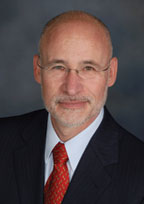 Leslie and I were recently reviewing our personal legal documents — wills, powers of attorney, health care directives, etc. A friend asked us a question, “Do your children have their own ‘durable power of attorney for health care decisions’ documents?
Leslie and I were recently reviewing our personal legal documents — wills, powers of attorney, health care directives, etc. A friend asked us a question, “Do your children have their own ‘durable power of attorney for health care decisions’ documents?
Leslie and I said no ... and then paused.
Both of us realized what this meant. If something were to occur to either of our children — both of whom are over 21 — we would have no legal say regarding their health care. It would be in the hands of the state.
Remember Nancy Cruzan and Terry Schiavo? (If you don’t, you search their names and read about them on the internet.) Nancy was a 25-year-old, Terry Ann a 27-year-old. While both were married at the time of their health crises, neither one had legal documents permitting family and/or friends to determine the direction of their health care. If they did, we would not know about their lives or their deaths.
Many of our children, grandchildren, nieces and nephews (and friends’ children, grandchildren, etc.) are in those “in between” years of 21-30, where they are adults, yet still finding their own ground, still discovering their meaningful relationships. Perhaps they are still in college, in grad school, in their first or second jobs. Maybe they are dating or in a committed relationship, engaged, or even recently married.
What if the unimaginable happened and — tomorrow — your child was in a health crisis, unable to speak for him/herself? Who would be there to direct his/her health care?
You? Sadly, the answer is no.
While I am not an attorney, we were told unequivocally that absent legal documentation (a durable power of attorney for health care decisions, a health care directive or a living will), parents have no legal right to determine the health care for their child once s/he turns 21.
As a rabbi, I often counsel families regarding health care decisions. Many times, we sit and ask the question: “What would Sam have wanted in this situation?” “Would Sadie want to be on life support?” “Would Sara want us to take extraordinary measures?” Sometimes, the patient has shared his/her views. Often, s/he has not. Fortunately, no family I have helped had to contend with the state wanting one approach and the family wanting another. Equally fortunate, I have never helped a family that faced such decisions with a young person. But, it can happen. It does happen. And we need to protect our children’s desires.
So, this message is a plea: Have a conversation soon with your adult child (grandchild, niece, nephew) about this difficult topic. (Or forward this message to a friend and encourage them to have the conversation with their adult child, etc.)
In that conversation, encourage/assist your child to sit with an attorney and write a legal durable power of attorney for health care decisions. Your child has the right to determine who will make health care decisions if s/he is unable. Perhaps it will be you. Perhaps a grandparent. Perhaps a spouse. Perhaps a best friend. But your child — for your child’s own sake — needs to decide and create that legal document.
An equally important, and even more confounding document to write is a living will. For this is where a person says what s/he wants for her/himself if something were to happen and becomes incapacitated. Questions include: What situations would your child NOT want medical treatments to keep him alive? How does your child feel about organ donations, if something were to happen to her? Who will honor your child’s wishes most, to assure that his requests are carried out? (A good starting place with some reasonable questions to ask can be found at http://www.johncmartinlaw.com/articles/AHCDs.pdf. While it speaks about California, the questions raised are important regardless of where one lives.)
As our children become adults, they go off into the world filled with optimism and joy. We wish to encourage them and support them in their dreams. Equally, though, we want to protect them. Perhaps one of the great gifts we can offer is to help them put into place a system to help them — to speak for them — if they are unable to do so.
It is unimaginable and horrible to contemplate a time when our children are incapacitated and unable to communicate their own health wishes. We and our children don’t want to confront those painful issues. No doubt that was what Nancy Cruzan and Terry Ann Schiavo’s parents thought, as well. I am confident they wished they had.
Rabbi Arthur Nemitoff is senior rabbi at The Temple, Congregation B’nai Jehudah. This column was first published in his weekly Bisseleh Bytes newsletter emailed to congregants.


